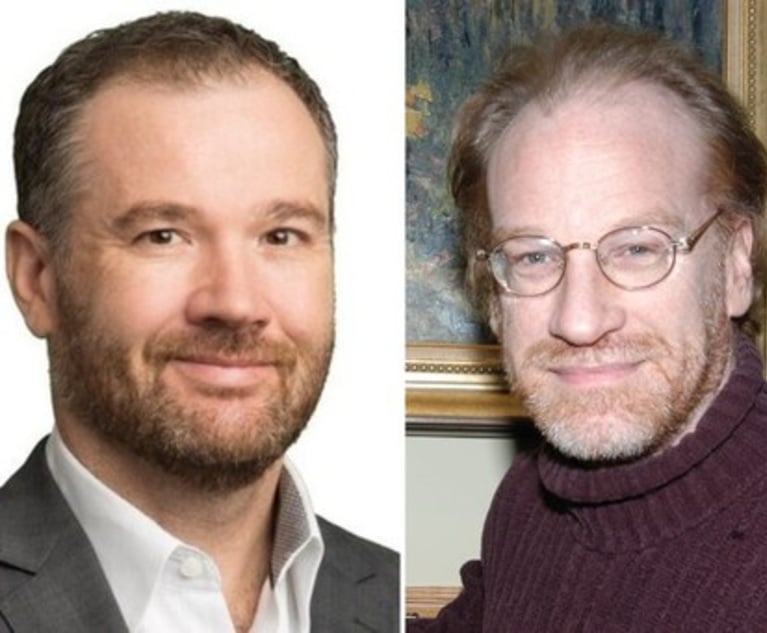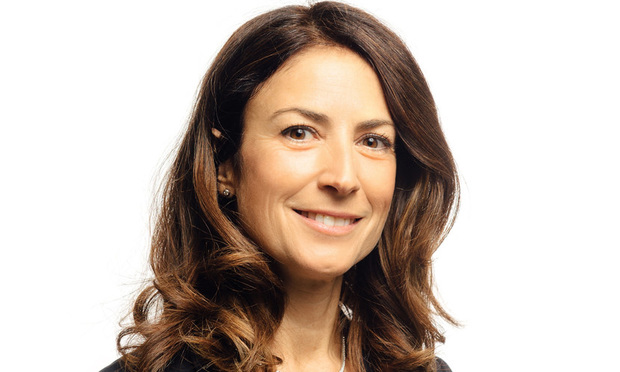Nokia adopts AI technology for contract review as legal chief takes new business-focused role
Chief legal officer appointed president of Nokia Technologies as telecoms giant considers using AI to analyse law firm bills
June 21, 2018 at 08:36 AM
4 minute read
Nokia has launched a new artificial intelligence (AI) tool for its global legal team.
The global telecoms company began using Seal Software – which enables lawyers to analyse legal contracts more quickly – last month.
The Finland-based business has initially begun to use the software in its India legal services centre but has plans to extend its use to its global legal team over time.
Nokia chief legal officer Maria Varsellona – who recently took on the additional title of president of Nokia Technologies – said: "We are at the beginning of the legal AI revolution. We decided to invest in AI now so that our operations can evolve at the same time the technology evolves. AI will enhance the abilities of our legal professionals and help them focus on more value-added tasks."
Varsellona's new role, which she will carry out in tandem with her CLO responsibilities, will see her take the lead on delivering a long-term plan for profitability for Nokia Technologies, the telecoms company's advanced technology and licensing business.
Nokia first signed up to Seal in December, but has spent the past six months training the AI technology ahead of the May launch.
Head of AI for legal, Tony Owens, who also heads up the company's Malaysia and Brunei legal operations, said: "We had a group of eight legal professionals training the AI. It needs 50-200 examples per clause you wish it to find and it takes time, just like a human needs training time. The main advantage of training the AI is that it speeds up our lawyers and makes them more accurate.
"We are starting in India but we will definitely roll it out elsewhere [to other legal departments] within 2018."
Previously, Nokia had spent two years exploring AI options for its legal team, first building its in-house software before moving on to find a larger-scale system.
Owens commented: "In early 2016 we realised we have everything we need at Nokia to build our own artificial intelligence. However, building our own system on a bigger scale would be too much work, so we took a year to analyse all the major companies."
Nokia looked at 15 vendors between the end of 2016 and early 2017 before whittling this list down to two. In order to decide between the two, the company undertook a 'man vs machine' test.
Owens explained: "We had two teams; one lawyer analysing the contract and another checking his work. The other team included the AI system with a human checking the work. Both teams were given one contract and a checklist of 22 risks or factors to look for. We assessed how long it took them and how accurate their work was."
Ultimately, Nokia decided Seal would save the business the most money. Going forward, the company is also exploring whether it could use AI to change its billing processes.
Owens said: "This is not a feature of Seal, but it is possible through AI to analyse bills that we receive from law firms. We are exploring that option. You have thousands of bills from law firms and you can train the AI to work out how long a task typically takes. It can analyse what amount of time is reasonable and also see if a task should be carried out by a more junior lawyer at a lower billable rate."
Varsellona, who joined Nokia Siemens Networks as general counsel in July 2013, became chief legal officer and executive vice-president of Nokia in May 2014. She took on the new title of president earlier this month, replacing Gregory Lee, who will remain at Nokia for a transition period but is no longer on the company's leadership team.
She recently talked to Legal Week sister title Corporate Counsel about her new role and leadership development in law, while also offering some advice for business-inclined lawyers.
This content has been archived. It is available through our partners, LexisNexis® and Bloomberg Law.
To view this content, please continue to their sites.
Not a Lexis Subscriber?
Subscribe Now
Not a Bloomberg Law Subscriber?
Subscribe Now
NOT FOR REPRINT
© 2025 ALM Global, LLC, All Rights Reserved. Request academic re-use from www.copyright.com. All other uses, submit a request to [email protected]. For more information visit Asset & Logo Licensing.
You Might Like
View All

When Inadvertent Disclosures Happen at a Law Firm, Who Is Responsible?

Canadians Mourn the Loss of Two Esteemed Legal Professionals: Alan Young and Jason Moyse
4 minute readTrending Stories
- 1Reviewing Judge Merchan's Unconditional Discharge
- 2With New Civil Jury Selection Rule, Litigants Should Carefully Weigh Waiver Risks
- 3Young Lawyers Become Old(er) Lawyers
- 4Caught In the In Between: A Legal Roadmap for the Sandwich Generation
- 5Top 10 Developments, Lessons, and Reminders of 2024
Who Got The Work
J. Brugh Lower of Gibbons has entered an appearance for industrial equipment supplier Devco Corporation in a pending trademark infringement lawsuit. The suit, accusing the defendant of selling knock-off Graco products, was filed Dec. 18 in New Jersey District Court by Rivkin Radler on behalf of Graco Inc. and Graco Minnesota. The case, assigned to U.S. District Judge Zahid N. Quraishi, is 3:24-cv-11294, Graco Inc. et al v. Devco Corporation.
Who Got The Work
Rebecca Maller-Stein and Kent A. Yalowitz of Arnold & Porter Kaye Scholer have entered their appearances for Hanaco Venture Capital and its executives, Lior Prosor and David Frankel, in a pending securities lawsuit. The action, filed on Dec. 24 in New York Southern District Court by Zell, Aron & Co. on behalf of Goldeneye Advisors, accuses the defendants of negligently and fraudulently managing the plaintiff's $1 million investment. The case, assigned to U.S. District Judge Vernon S. Broderick, is 1:24-cv-09918, Goldeneye Advisors, LLC v. Hanaco Venture Capital, Ltd. et al.
Who Got The Work
Attorneys from A&O Shearman has stepped in as defense counsel for Toronto-Dominion Bank and other defendants in a pending securities class action. The suit, filed Dec. 11 in New York Southern District Court by Bleichmar Fonti & Auld, accuses the defendants of concealing the bank's 'pervasive' deficiencies in regards to its compliance with the Bank Secrecy Act and the quality of its anti-money laundering controls. The case, assigned to U.S. District Judge Arun Subramanian, is 1:24-cv-09445, Gonzalez v. The Toronto-Dominion Bank et al.
Who Got The Work
Crown Castle International, a Pennsylvania company providing shared communications infrastructure, has turned to Luke D. Wolf of Gordon Rees Scully Mansukhani to fend off a pending breach-of-contract lawsuit. The court action, filed Nov. 25 in Michigan Eastern District Court by Hooper Hathaway PC on behalf of The Town Residences LLC, accuses Crown Castle of failing to transfer approximately $30,000 in utility payments from T-Mobile in breach of a roof-top lease and assignment agreement. The case, assigned to U.S. District Judge Susan K. Declercq, is 2:24-cv-13131, The Town Residences LLC v. T-Mobile US, Inc. et al.
Who Got The Work
Wilfred P. Coronato and Daniel M. Schwartz of McCarter & English have stepped in as defense counsel to Electrolux Home Products Inc. in a pending product liability lawsuit. The court action, filed Nov. 26 in New York Eastern District Court by Poulos Lopiccolo PC and Nagel Rice LLP on behalf of David Stern, alleges that the defendant's refrigerators’ drawers and shelving repeatedly break and fall apart within months after purchase. The case, assigned to U.S. District Judge Joan M. Azrack, is 2:24-cv-08204, Stern v. Electrolux Home Products, Inc.
Featured Firms
Law Offices of Gary Martin Hays & Associates, P.C.
(470) 294-1674
Law Offices of Mark E. Salomone
(857) 444-6468
Smith & Hassler
(713) 739-1250










